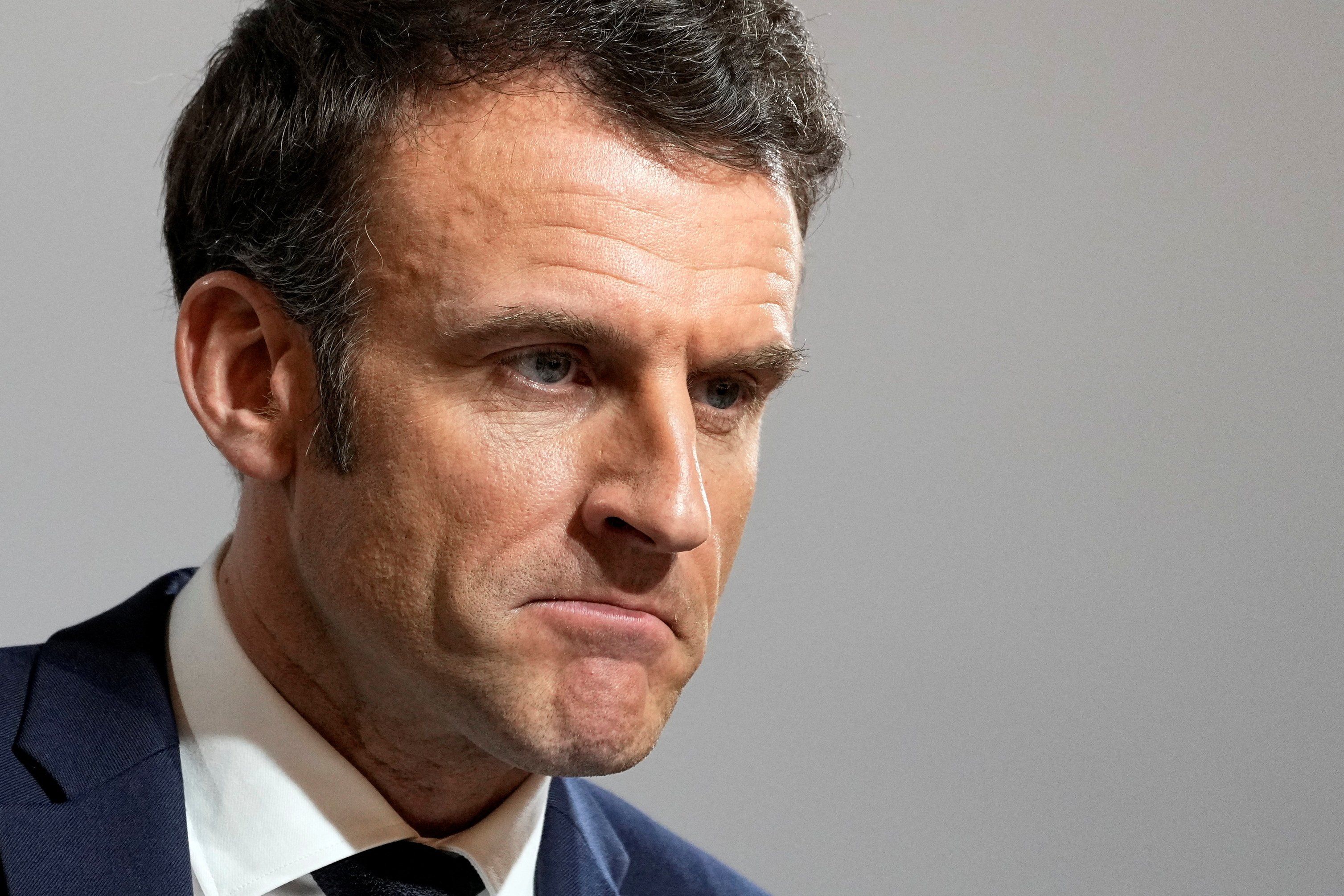A tense France waits
It’s a big day for French President Emmanuel Macron. After months of protests, strikes, and piling up trash, the National Assembly is set to decide on whether – and how – to vote on the president’s very unpopular pension reform plan, which would raise the national retirement age by two years to 64. (For a reminder of what’s at stake with this reform, why Macron says it is necessary, and why two-thirds of French despise it, see our explainer here.)
With only a slim majority in the lower house, Macron’s bloc needs support from at least some center-right lawmakers from Les Republicains to see this through, but it is still unclear if he’ll have the numbers, particularly since some of his own coalition members say they won't back the bill.
Macron now faces a very tough choice: call for a vote and risk losing the fight over his biggest domestic priority, which would see him turned into a lame duck president for the remainder of his five-year term. Or trigger a constitutional loophole that would rush the bill through without a vote but risk setting the streets on fire. If he chooses the latter, unions warn, his government will pay a hefty price...
Honduras unfriends Taiwan
(The People's Republic of) China swiped one of Taiwan's few remaining diplomatic chips this week when Honduras announced it'll change official recognition of China's government from Taipei to Beijing.
It's unclear why Honduran President Xiomara Castro — who promised to switch sides before she was elected in 2021 but then walked it back once in power — changed her mind again. Regardless, Honduras’ U-turn will surely overshadow Taiwanese President Tsai Ing-wen’s visit next week to Central America. Taiwan still has friends there in Belize and Guatemala, but Xi Jinping is spending big in the region to counter Taipei's diplomatic clout.
China, for its part, is paying more attention to the second leg of Tsai's trip. She also plans to travel to California to meet US House Speaker Kevin McCarthy, who finally decided against irking Beijing by emulating his predecessor with his own Taiwan visit.
Where’s the drone?
After the encounter between a Russian fighter jet and an American-made drone above the Black Sea, some have warned of a risk of an escalation in the Ukraine war that pits Russia directly against the US. That’s extremely unlikely.
The Biden administration, which on Thursday gave the US military the green light to release footage of the crash, has been clear and consistent that its support for Ukraine won’t include actions that bring US and NATO soldiers into direct conflict with Russian forces. And though Vladimir Putin has tried to persuade Russians and the world that Russia’s at war with the West, he has avoided any action that might push his military into a broader war it would quickly lose. (If Putin wanted a wider war, it would be very easy to start one.)
Nor is this incident particularly unusual. As the Washington-based Institute for the Study of War noted on Tuesday, “Russian forces have used coercive signaling against US and allied flights and naval vessels for decades in multiple theaters without triggering conflict.” The US will continue to use drones in the Black Sea to provide Ukraine with intel on Russian actions. But there is one aspect of this story we’re still watching: Can Russia recover the wreckage of the drone? If so, and it’s in decent condition, it might give Russian engineers access to advanced drone technologies they don’t already have.More For You
Alina Polyakova, President and CEO of the Center for European Policy Analysis, warns that NATO faces a defining moment.
From the sidelines of the 62nd Munich Security Conference in Munich, Polyakova told GZERO's Tony Maciulis that the Arctic has become “an arena of incredible global competition,” with Russia and China expanding their ambitions. While President Trump’s focus reflects “the right instincts” on security, she argues allies must strike a mutual deal to secure the region together.
Most Popular
Think you know what's going on around the world? Here's your chance to prove it.
Every year, the Munich Security Conference, the world’s leading forum on international security, releases data that sheds light on how citizens view global risks.
The US government reportedly plans to fund MAGA-aligned groups in Europe. The stated aim is to oppose European laws on online speech.
